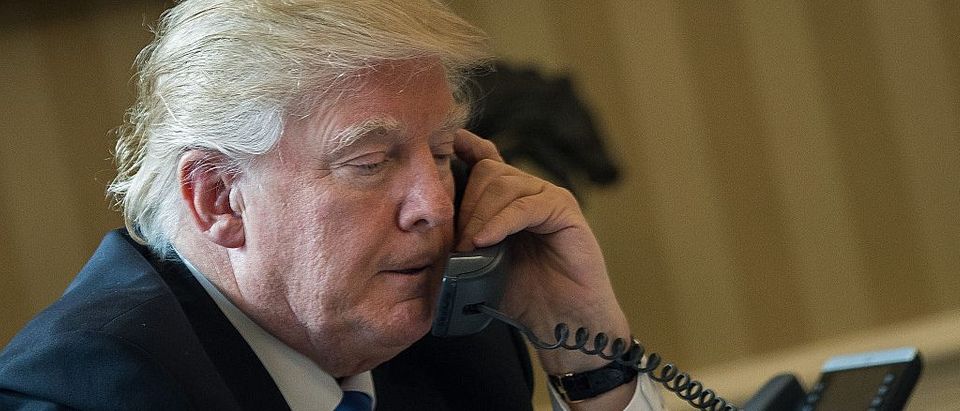Former Director of National Intelligence James Clapper recently suggested after President Trump’s campaign-style rally in Phoenix that the Commander-in-Chief might be mentally unstable, making headlines around the country.
But for as much attention as Clapper’s remarks grabbed, the thought process behind them seems lacking. True, plenty of Americans suffer from various mental illnesses including depression, and President Trump might, too. But the reality is that it’s also possible that the President is simply sleep-deprived.
President Trump has previously professed to get only a handful of hours a sleep each night.
He certainly tweets at odd hours, when most of us— but also most Presidents— would be getting at least a little shut-eye. And he seems to make social media typos like we all make when we’ve had too little rest: Tweeting “covfefe” instead of what, presumably, should have been “coverage.” Was that an auto-correct problem, or might he be sleep-deprived?
And how would we know? As it turns out, an artificial intelligence (AI) model we built at UCLA this year could help answer these questions by diagnosing our president through his tweets.
In a joint study between UCLA and Intel, we tracked the Twitter accounts of 200 incoming freshmen to UCLA who tweeted at least three times a week. Our goal was to understand the stressors and difficulties freshman faced as they went through their first quarter of university life.
The survey tracked this in three ways: First, students took a weekly survey in which we’d ask them about their stress levels and activities, including how much they’re exercising, how well they were sleeping each night, what stressful events were happening, as well as academic information such as tests and grades. We also gave them Basis/Intel wearable tech devices that tracked their sleep and exercise levels. And, finally, we followed their tweets.
We then used those three different streams of information to perform a number of different studies.
In one of them, we compared the tweets to the sleep data from the wearable devices and their survey responses on how well they had been sleeping. Our goal: could we predict from the tweets whether they were sleep deprived?
It turns out we could. We looked at things like the time of day they were tweeting, the sentiment in the tweets—did they sound happy or sad?—as well as the particular words and phrases they were using. We compared our predictions using people’s tweets to predict sleep deprivation and found it was a lot better than simply guessing whether they were sleep deprived.
So we could do the same for Donald Trump. We’d have to tweak the model to be appropriate for his circumstances—after all, the concerns of a president should be different from a freshman in a college dorm—but when pundits are questioning our president’s sanity after a recent tweet he has made, we could analyze the tweet streams to see whether he’s an insomniac who tweets when he’s having trouble sleeping rather than someone who has a severe technology addiction.
We’ve done a lot of similar studies where we follow people on social media and make predictions based on their social media activity. Usually we follow crowds of millions or hundreds of millions of people on social media to predict their behaviors. If our social media models detect a potential problem might occur, like a disease outbreak, we can even notify public health agencies or design interventions to try and prevent the problem before it happens. We did a lot of work on HIV prevention, for example.
We came up with an AI model where we were able to accurately predict at the county level what the rates of HIV infection were among the population. All from just tweets. Google search terms can be used to predict crowd behavior too. A recent study looked at how the Netflix series 13 Reasons Why is leading to more searches on how to commit suicide.
This study was different though. Instead of following crowd behavior, which is imprecise, this was one of the first studies to look at whether it’s possible to predict a specific person’s behavior. We learned we can. We can follow individuals and predict how much they sleep or how happy or stressed they are just by looking at their tweets.
We haven’t extended this research to analyze President Trump’s Twitter feed, formally. But I have a hunch that if and when we do, we’ll find that he very likely is getting far too little sleep—and you could construe from this that the same problems that so many of us suffer from contribute to some of his more erratic behavior, including online. If so minded, President Trump or his aides might want to read my new book about changing problematic behavior, including sleep-deprivation; insomnia and sleep troubles are not incurable, but they don’t solve themselves.
Sean Young, PhD is the author of Stick with It, a UCLA Medical School professor and the Executive Director of the UC Institute for Prediction Technology.


